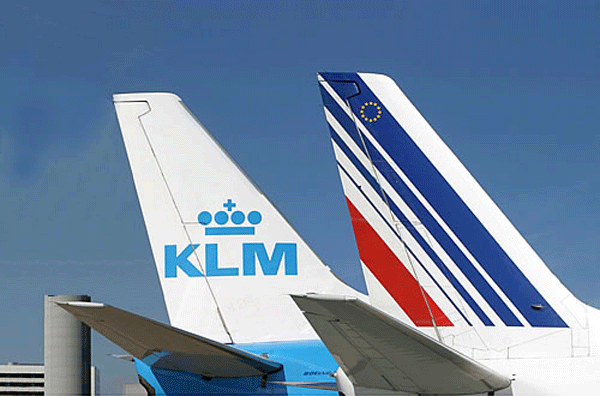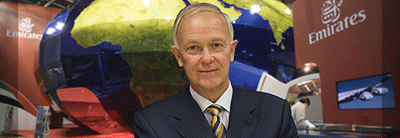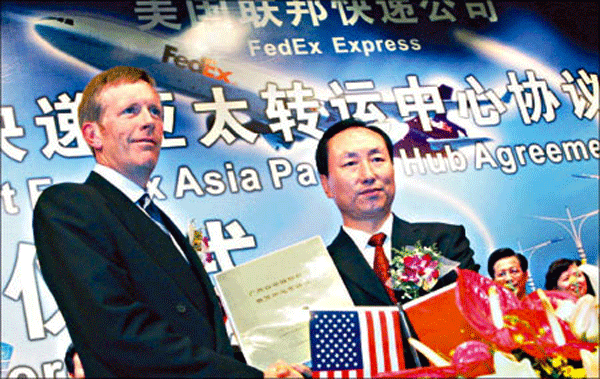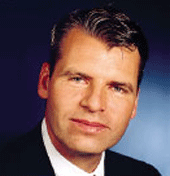Will KL/AF Charge Revamp Fly

DL just announced it lost one billion dollars
in the second quarter of 2008 because of the continuous rise in fuel prices.
The wonder is how different airlines (in
this case within the same SkyTeam alliance) can see things in different
ways!
The IATA Agent/freight forwarder is mostly
a non-asset based entity, albeit acting both as the airline’s cargo
customer and as transportation manager or logistics.
As such, it traditionally derives its revenue
from the margin between the rates it negotiates with the carrier and those
it sells its customer, the shipper. The freight charges on a shipment
on which the forwarder acts as the airline’s agent are commissionable,
however as the KL/AF Surcharge Offer article (ACNFT
July 15) pointed out, the fuel surcharge has not been commissionable.
The argument will certainly go on and can
be made by each party; however there is no doubt that the brunt of the
fuel increase to the tune of billions of dollars is borne by the airline
alone. Why on earth would anyone elect to give the agents incentive at
exactly this time is something to wonder about!
The agent has no additional cost in collecting
5-10-100-1,000 or 10,000 dollars from the shipper for the total charges
on a shipment regardless of what portion of it may represent a fuel surcharge.
What value does a KL/AF agent have to deserve
earning a commission on a fuel surcharge that the airline alone incurs?
Resolution 600A is crystal clear when it
comes to Other Charges in that it provides a code for the fuel surcharge
and three scenarios for miscellaneous other charges.
We can presume that on KL/AF air waybills
issued after September 1, the fuel surcharge code will no longer be shown
for short and medium range flights but rather it will be incorporated
in the freight charges, while for long distance flights it will remain
as it is now as a separate fuel surcharge.
This raises several interesting questions:
How will CASS (and CNS in the U.S.) process
it?
There would seem to be significant administrative
and clerical overhead in ensuring the correct formula is applied, whether
procedurally or in computerized fashion.
To quote from the article in Air
Cargo News FlyingTypers July 15:
“According to information obtained
by ACNFT, the new rate structure will be 20 percent for the kerosene surcharge
of presently 1.25 euros on medium haul flights and 50 percent on short
distance routes.
“A shipment from Paris to medium haul
destination Beirut illustrates how the new deal will work:
“On that route KLM /AF Cargo charges
an average rate of 0.50 euros per kilogram, plus 1.25 euros fuel surcharge
adding 0.14 euros for security, making the total rate per kilo 1.89 euros
total.
“The new rate structure will demand
the same final amount from the clients, but the invoice breakdown will
be comprised of 0.75 euros as rate plus 1.00 euro fuel and 0.14 for security.”
 The
source said reasoning here is that 20% of 1.25 euros surcharge accounts
for 0.25 euros. The
source said reasoning here is that 20% of 1.25 euros surcharge accounts
for 0.25 euros.
From September 1, this difference of 0.25
euros will be added to the carrier's rate bringing it up to 0.75 euros
(0.50 + 0.25) per kilogram instead of 0.50 euros as before.
I am no math whiz for sure, but how the
formula in this example brings higher market transparency eludes me.
The airline accounting incurs an increased
level of gymnastics, the agent to use the same example above stands to
make an average 5% more commission on 0.75 per kilo versus 0.50 per kilo
or 0.0375 per kilo, and the shipper pays the same as before.
The airline also continues to pay the same
high price for aviation fuel as before.
This sounds to me like rearranging the chairs
on the deck of the Titanic.
Your move.
Ted Braun
Tedb@freightpath.com
Crisis Year
& Tender Mercies
 “Oil
at $140-plus has changed all reality in aviation. “Oil
at $140-plus has changed all reality in aviation.
“We are in uncharted territory.”
Tim Clark President of Emirates Airline
is smart, a great strategic thinker and maybe even better he tells it
like it is, like what he says or not.
Here Mr. Clark talks at length about the
subject on almost everyone’s mind these days, pulling no punches
as he discusses what sky-high fuel means to every one of us.
“This is the greatest crisis in aviation’s
history – bigger than the Gulf wars, the attacks of September 11
2001, severe acute respiratory syndrome and past oil shocks.
"While Emirates remains one of the
more optimistic airlines, the overall view of our industry is dire.
"This year many airlines have grounded
aircraft or gone bankrupt and an estimated 100,000 jobs will be cut.
"Some environmental ideologists would
applaud this loss – but aviation, on which almost 33m jobs and 7.5
per cent of global gross domestic product depend, is vital for the world’s
economic future. This truth is too often lost in countries where environmental
arguments have escaped all reason.
"There is a myth that only a high oil
price is capable of forcing airlines to reduce energy demand. Over many
decades, airlines have, hand-in-hand with the manufacturers, helped to
develop more efficient aircraft. Yes, the oil price is accelerating further
efficiency. But reducing energy demand has always been part of our business
models. Ultra-efficient new aircraft, such as the Airbus A380, are the
direct result of airlines such as Emirates working with the aerospace
industry to create the most aerodynamic, fuel- and emission-efficient,
lightest aircraft possible.
"Our industry was too slow to communicate
this and respond to the shifting political sentiment on the environment.
We are correcting this misconception and, of course, we have more to do
to become more eco-efficient businesses. However we will not achieve this
– or indeed survive as profitable entities – if punitive taxes,
charges and unfair trading schemes continue on their present trajectory.
"When the European Union emissions
trading scheme was first devised, it was based on $40 oil. The most ideological
parliamentarians hoped the ETS would be the equivalent of pushing oil
above $100.
"They got their wish on price –
without ever enacting the legislation. But they are not finished. They
want significant further increases in the cost of business and leisure.
"Our industry understands the logic
of the original ETS proposal: encourage efficiency and price those not
pursuing it into action. It is a shame the current EU ETS is now nothing
more than an aggressive tax designed to hurt one of the world’s
most important industries.
"The UK government’s aviation
duty proposal is equally alarming. This “environmental” tax
is essentially a billion-pound grab by government from the pockets of
passengers and airlines. None of this tax windfall will go into environmental
research but, instead, into general revenue. Excuse my cynicism.
"Incredibly, UK policymakers want to
punish heavier aircraft and longer-haul flights. This is despite the fact
that aircraft such as the part British-built A380 are deliberately heavier
because efficiency means flying more passengers per aircraft. These aircraft
reduce fuel burn, emissions and noise by up to 30 percent per passenger,
yet will be disproportionately taxed. Why, as an island nation, would
Britain want to increase tax on long-haul aviation? This insularity can
only punish exports and hurt important trading relationships.
"In spite of all of these hurdles,
Emirates remains cautiously optimistic.
"We operate in an environment in Dubai
where it is survival of the fittest, with no government protection, subsidy,
cheap fuel or restrictions on competitors.
"Long haul has seen most of aviation’s
greatest recent environmental improvements.
"For every new aircraft we order, our
fuel use and emissions per passenger improve.
"This must be our industry’s
model.
"There is certainly a good argument
that those airlines with old gas-guzzlers need to retire such aged aircraft
quickly.
"Notwithstanding an oil Armageddon,
aviation should be able to grow and facilitate economic prosperity through
greater efficiency.
"Sadly, the policy levers I mentioned
above offer few positive incentives to do so.
"Profitable airlines that reinvest
in new aircraft allow manufacturers to create better models.
"Without profitability, the eco-efficiency
model fails.
"Governments should be encouraging,
not punishing, such a formula.
"Why can there not be positive discrimination
in favor of efficient aircraft?
"Why not reward a new A380 with slots
at congested airports?
"Why not recognize lower-emission aircraft?
Why do governments not earmark funds for research and development?
"Instead, they seek to use blunt instruments
to tax punitively an entire industry.”
Federal
Expression At Guangzhou
 FedEx
Asia President David Cunningham and Liu Zijing, President of Guangdong
Airport Management Corporation at signing ceremony FedEx
Asia President David Cunningham and Liu Zijing, President of Guangdong
Airport Management Corporation at signing ceremony |
FedEx Asian-Pacific Hub at
South China’s Guangzhou Baiyun Airport has passed the completion
acceptance on July 9, marking an important step towards its scheduled
opening on December 26.
A panel composed of experts from General
Administration of Civil Aviation of China (CAAC) and related governmental
agencies inspected the components of the hub, such as the sorting building,
office building and other facilities.
Mr. Huang Qunwen, Deputy Director of Baiyun
Airport Expansion Project, told Air Cargo News FlyingTypers:
“Before the end of this month, the
flying zone, another principle part of the whole Hub project, will also
receive its completion acceptance.
“The Hub could declare an ending of
its construction works as long as a positive testing result is achieved
on the flying zone part.”
As FedEx’s largest base outside the
U.S., the Hub at Baiyun Airport covers a total area of 82,000 square meters
and is capable of handling 179,000 express packages, or more than 1,800
tons per day by the year 2010.
“In accordance with the standards
of both China and the U.S. FM, main building of this hub and its automation
degree has reached the top level of international express.
An important supporting facility to the
hub is the third runway at Baiyun Airport.
Mr. Huang said:
“The Third runway is now in busy preparation.
And construction is expected to start at the beginning of next year and
complete before 2010.
“The third runway will mainly serve
FedEx’s hub, but not exclusively; it will be available also for
passenger flights as it is needed.”
David
|




